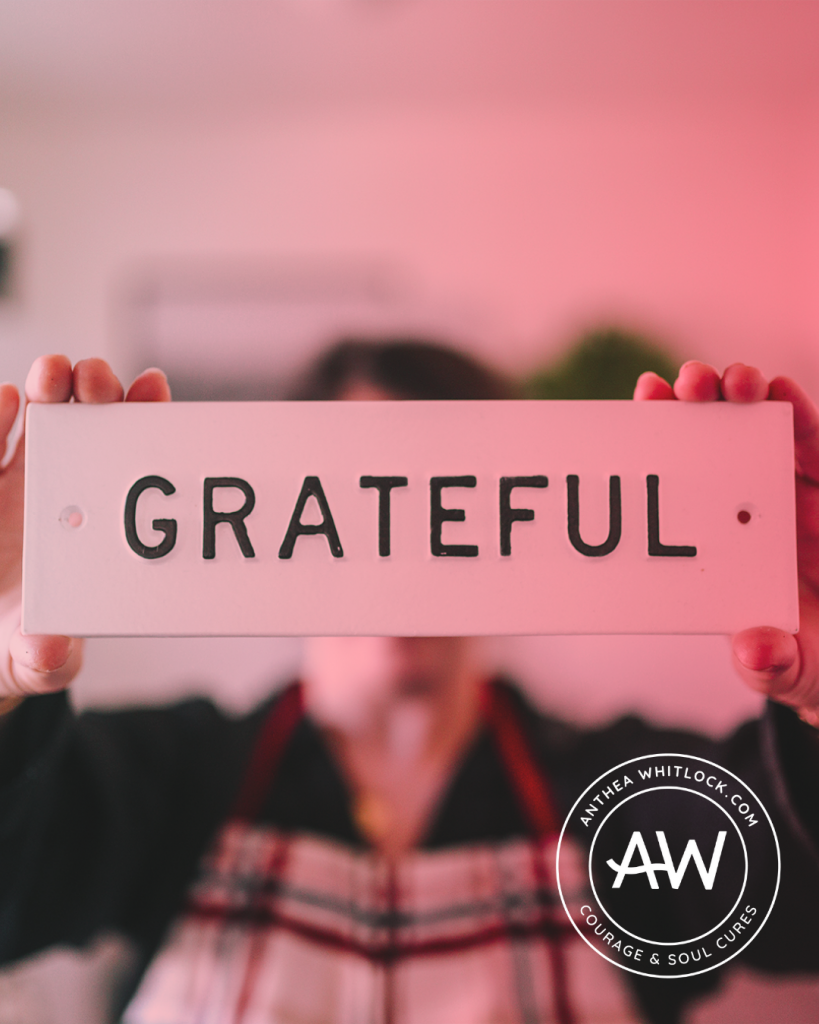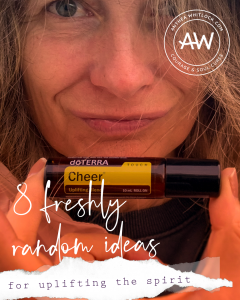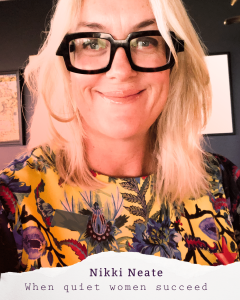So, the five-year diary with the lock and all from her teens might not have stuck. But Pat Reble's encounter with gratitude journalling decades later became both a catalyst to shake things up and lifelong habit. And then she went to prison...
Pat Reble has firmly ensconced herself into the consistency of daily gratitude journalling for some thirty years. Ever since deciding back in her early forties that - "I didn't like the person that I was. I had a very negative attitude towards life back then."
Although we talk a lot about men going through a midlife crisis, she suggests that as women within almost any culture, we typically have several periods during our lives when we tend to reinvent ourselves. It was midst once such metamorphosis, while going through a particularly sad patch in her own life, that Pat stumbled upon gratitude journalling. She tried it and it stuck.
"I started off simply by every day writing down five things to be grateful for. Without me consciously realising it, this relatively quickly began changing the way I was as a person. Not just the way I thought, but the way I actually was."
"Now, of course, we've got the brain science to back this up. We can actually see on brain scans that gratitude physically changes the brain, so it's certainly not just new age woo-woo stuff."
Albeit that some may have suspected as much, when not long afterward Pat threw in the towel on a longstanding and rewarding teaching career. She decided to answer a local advertisement looking for 0900 psychic line readers instead.
(After all, the active practise of appreciation is said to help us uncover more unsuspecting opportunities in life that we would likely otherwise overlook.)
"I just thought it would be a cool experience, so I went along to interview for it, even though I'd done precisely one reading before in my entire life. They gave me the job.
So all these people would ring me, and I'd give them a reading on the phone. Within a week they'd be calling me back saying 'Well, that was bang on, what's the next bit?'"
Increasingly concerned about the ethics of the outfit she was working for, it wasn't long before Pat decided to set up her own 0900 line, which she ran for several years from New Zealand. Needing only a telephone and a computer for call routing, she built herself up a great little internationally-portable business, hiring other readers to meet demand. Meaning she was able to continue with it for another seven years or so when her then husband said what a good idea it would be for them to move to Perth.
In reality, with tarot reading you get a lot of people who just want to be able to talk without being judged, says the 70-year-old (and now retired) Pat Reble of today. Listening as she recounts different aspects of a colourful career, there is an evident common thread - something of a propensity to support and be there for people who are perhaps frequently misunderstood.
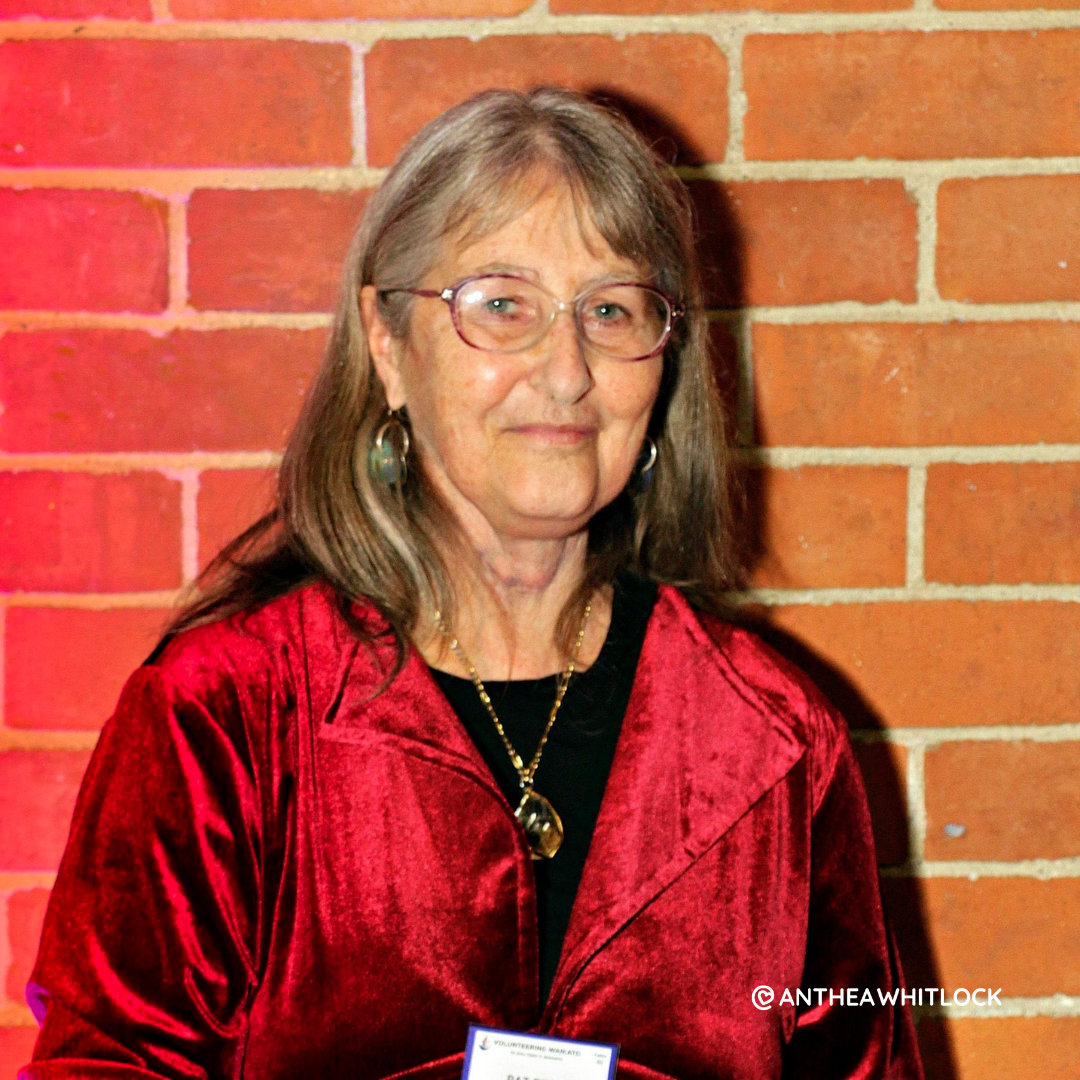
PAT REBLE HAS NOW RETIRED, FOLLOWING A CAREER FULL OF COLOUR IN SUPPORT OF THOSE WHO CAN OFTEN TEND TO BE MISUNDERSTOOD
Prior to becoming a tarot professional, Pat had taught at Mt Roskill Grammar. She had an affinity for the so-called "bad kids", back when the area represented a large proportion of Auckland's state housing. After having her own children, she switched to teaching academic subjects to adults at night school (once a big government initiative here in NZ). An experience that made her realise just how many adults are lacking in confidence, especially women.
Pat was still gratitude journalling each and every day, this had never waned. Only by now, in addition to the "five things", she had expanded into recording her personal take on current events as well. Incorporating, by her own admission, her tendency to see the funny side of things.
This was all before Pat found herself in jail. She was 57. With her obvious third-eye talents, it is tempting of course to ask: How did she not see this coming?
"Actually, I did have a really strong feeling that I needed to change jobs. Driving along in the car one day I heard a radio advert for the Department of Corrections. I thought, okay that sounds interesting. That was Wednesday and applications closed Friday, so I got mine in just under the wire."
The recruitment, acceptance and training process took three long months. Just a few days after officially starting work on the ground as a prison officer at Casuarina (the men's maximum-security prison for Western Australia), the global financial crisis happened. The bottom fell right out of Pat's tarot business practically overnight as the discretionary income of her primarily US-based clients evaporated. Divine timing in play perhaps?
Later seconded to Corrections' Programme and Treatment area, Pat began presenting rehabilitation programmes to some of Western Australia's worst offenders. When a health collapse saw her return to New Zealand in 2015, she offered her services on a voluntary basis to one of our own largest prisons, Spring Hill, near Meremere in the Waikato.
"Within an hour of contacting them to see if they could make use of my skills, I had a phone call requesting that please could I run an anger management programme? Oh, and could I design it as well, because they didn't actually have one."
In the three years in which Pat ran her own six-week curriculum at Spring Hill, about 300 men were put through, very successfully. It was the most popular programme in the prison, at no time were there less than 80 on the waiting list.
"Six weeks is time enough to form a new habit, so naturally I started them off with gratitude journalling in the first week. By the time they were at week six, it was fully integrated - because they would start to realise that they were doing better and feeling better about themselves.
They were also getting feedback from Corrections staff as well as their own families that they were different, nicer to be around. I'd meet these men weeks, sometimes months later, and they would still be going with the gratitude journalling."
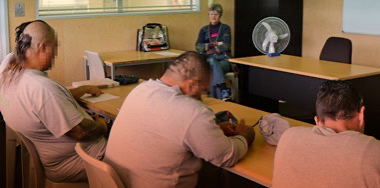
IN 2021, SPRING HILL CORRECTIONS FACILITY NOMINATED PAT REBLE FOR A VOLUNTEER EXCELLENCE AWARD FOR ALL HER WORK, SAYING - "THE CHANGE IN THE MEN IS A TESTAMENT TO THE LEVEL OF CONNECTION SHE ACHIEVES"
Gratitude diverts the brain away from looking for threats - the basis cause of anxiety says Pat - and instead it actually looks out for positives.
"We talk about journalling as being helpful when you're in some kind of psychological distress, but I doubt that very much, given the research that's been done on PTSD. It shows that the worst thing you can do is go over and over the trauma. Gratitude journalling is completely different; it forces you to look for the good bits and builds up that muscle."
Last year Pat also featured on the tele in a Kea Kids interview (a TV series for Stuff funded by NZ on Air) on how gratitude journalling for children can help with managing their overwhelming feelings.
"If we started children off young with gratitude journalling, it would make such a huge difference. When my kids were little, we began a family dinner table tradition where everybody had to say one good thing that had happened to them that day.
It was a great way to start them off with gratitude. It was also a great way to give everybody a fair go at talking! These days I've got my grandchildren doing it too. One of them was highly anxious, but she's no longer that same uneasy child that she was."
Pat is not going to live forever (none of us are, clearly). She has a terminal illness, a very slow one that she has had for many, many years and hence why the prison work had to be curtailed. She remains positive, of course - "Well, everybody's got to die of something" - and continues to write down her five things into her gratitude journal every day.

WHAT 30 YEARS OF GRATITUDE JOURNALLING LOOKS LIKE. PAT MOSTLY BUYS OLD ACCOUNTING JOURNALS FROM ONLINE AUCTION SITES IN WHICH TO INSCRIBE HER GRATITUDE, BECAUSE MODERN PAPER DOESN'T TAKE FOUNTAIN PEN INK VERY WELL SHE SAYS - SIMPLY WRITING AROUND ANYTHING ALREADY THERE, BECAUSE IT JUST MAKES THINGS MORE INTERESTING
"You have to remember that if you've built up your muscles at the gym and then you stop training, you quickly lose them again. If you stop gratitude journalling that's exactly what happens too. If you want to maintain it, you have to keep going. I still remember the person I used to be and don't want to go back."
Chatting with this Pat Reble of the present, one quite begins to suspect that life's most defining question is not who am I? Rather, what kind of person is it that I want to be?
--
Original title image: Nathan Dumlao via Unsplash
Other images: kindly supplied
Much love,
xAnthea

